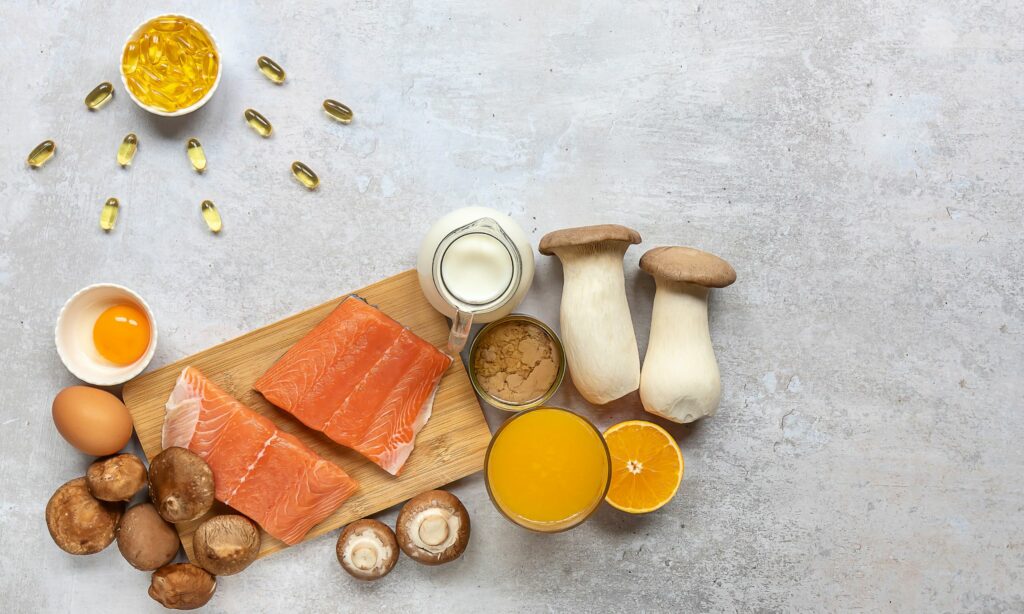Get Your Vitamin D

As many of us know, our bodies naturally source vitamin D from the sun’s UVB rays. As the light sits on our skin, our cholesterol cells convert the energy and synthesise vitamin D.
However, during the winter months, when we cover our bodies more, spend less time outside, and experience more cloudy and rainy days, getting enough vitamin D can be challenging – and lacking this nutrient can have an effect on our health.
Vitamin D promotes the absorption of calcium and helps the body to maintain adequate levels of calcium and phosphorus in the blood. It is also vital for bone growth, reducing the risk of osteoporosis, building immunity, and fighting off sickness.
Consider adding some of these foods to your diet during winter to ensure that you get enough vitamin D:
- Oily fish
Add salmon, sardines, herring and mackerel to your salads, wraps and sandwiches. - Eggs
Egg yolks are a rich source of vitamin D, so try having eggs for breakfast a few times a week. - Fortified dairy and plant-based dairy products
Add butter, margarine and milk (cow’s or soy) that has been fortified with vitamin D (but be sure to check the label) - Mushrooms
As a result of their exposure to sunlight during their growth, mushrooms are a great source of vitamin D. Try adding them to dishes such as pasta, stir-fry and salads, or eat them raw as a snack with cottage cheese or hummus. - Fortified cereals and orange juice
Level up your traditional breakfast by buying and enjoying fortified cereals and orange juice in the morning.

